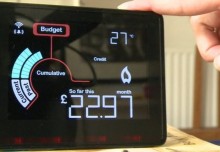
When comparing the eco credentials of energy companies, EDF and First Utility offer quite different approaches. EDF, with 5 million customers, both produces and supplies electricity as well as supplying gas. First Utility, is a supplier only now serving over a million gas and electricity customers. So let’s look at their approach to the environment.
More about EDF
As the UK’s largest electricity supplier of electricity EDF power 20% of UK customers. Their headline environmental aspirations are:
- to lead the decarbonisation of the UK electricity sector, reducing the intensity of carbon emissions from their electricity generation to less than 100g CO2 per kWh by 2030
- to achieve an increasingly positive environmental impact from operations across land, air and water
EDF run nuclear gas and coal power stations across the UK, sourcing 16.3$%of power from wind farms. They have plans for two nuclear power stations – Hinkley Point in Somerset and Sizewell in Suffolk, with a new gas power station at Sutton Bridge.
More about First Utility
First Utility is a relative new comer to the energy supply market – and since its launch in 2008 has grown to be the UK’s seventh largest supplier. The company doesn’t generate power, sourcing electricity generated mostly from coal and gas, with under 5% coming from renewables. Their environmental emphasis is on reducing customers’ bills through energy efficiency – offering smart meters, mobile apps and home automation to help cut waste and costs.
Eco credentials
So, now we have some background on the companies stated position on the environment, the tables below give data on fuel mix and pollution produced. First utility relies on fossil fuels, while EDF source more than half their power from nuclear. If you care about climate change, then 1KWh from EDF produces half of the carbon dioxide of power sourced from First Utility. Whether you think EDF have better green credentials depends on your view of nuclear power.
Fuel mix April 2014 – March 2015
| Fuel type | EDF | First Utility | UK average |
| Coal | 22.5% | 38.7% | 26.7% |
| Natural Gas | 6.1% | 36.2% | 29.7% |
| Nuclear | 54.9% | 14.2% | 22.2% |
| Renewable | 16.3% | 4.6% | 19.3% |
| Other | 0.1% | 6.3% | 2.1% |
Pollutant emissions April 2014 – March 2015
| Pollutant | EDF | First Utility | UK average |
| Carbon dioxide | 229 grams per KWh | 520 grams per KWh | 368 g per KWh |
| Radioactive waste | 0.0038 grams per KWh | 0.000994g per KWh | 0.001 grams per KWh |
Is nuclear eco?
Specialist opinions on nuclear generation, of course, differ. Veteran climate scientist James Lovelock agrees with EDF in believing nuclear power can provide our energy, reduce carbon emissions and prevent catastrophic global warming. EDF say renewable sources are unpredictable and dependent on climatic conditions while nuclear power generation relies on an abundant natural resource, is reliable and low-carbon. They believe these benefits outweigh the huge investment required to build nuclear plant and any risk from radioactive waste.
Others, like campaign group Friends of the Earth, believe nuclear presents an overpriced and unacceptable risk that won’t cut carbon dioxide emissions. This view is supported by environmental economists the Intergenerational Foundation who published a report this month, finding investment in wind and solar power would be cheaper for the UK as well as eliminating any environmental risk posed by nuclear.
So, when considering the eco credentials of EDF and First Utility, you need to consider whether EDFs aspiration to carry on cutting carbon emissions is worth the financial outlay and potential radioactive risk of nuclear power, or First Utility’s’ consumer centred approach of helping customers to reduce their own energy use are the greenest way forward.




